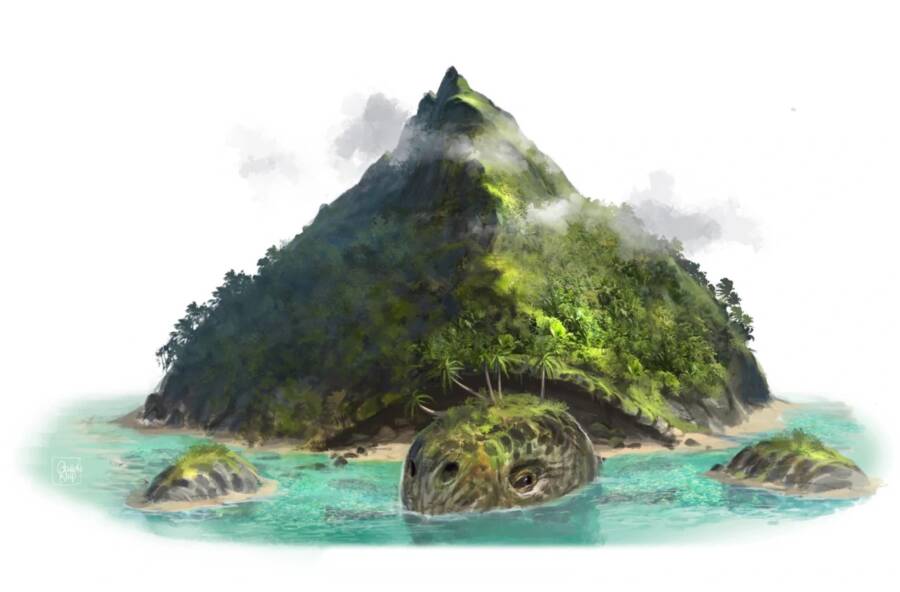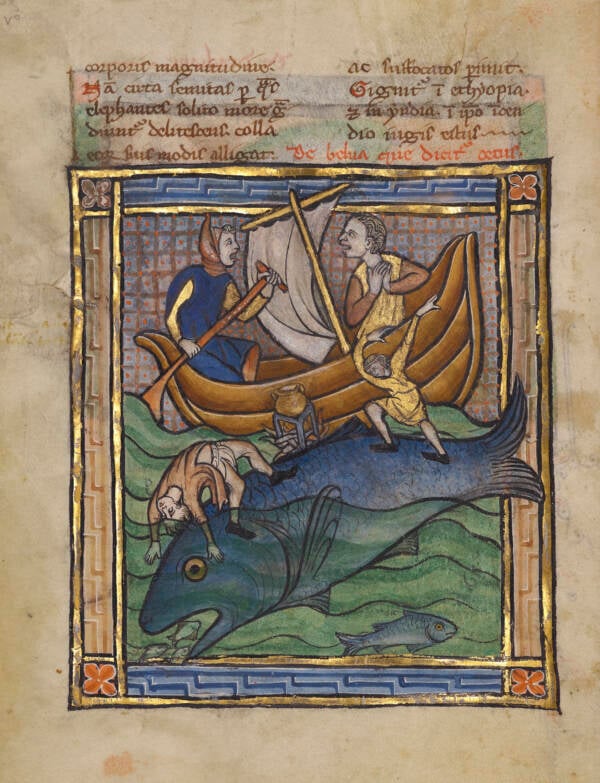Aspidochelone: One Of The Scariest Ancient Greek Cryptids

Warriors of Myth WikiOne of the oldest cryptids on this list, the aspidochelone was often described as a giant sea turtle or whale.
The myths of the ancient Greeks have been immortalized many times in popular culture. Whether it’s a Disney adaptation of Hercules or a reading of The Odyssey in a high school English class, most people in the Western world are, in some way at least, familiar with the stories of ancient Greece.
One less prominent story, however, is that of a sea monster known as the aspidochelone. Per Ancient Origins, there are two common interpretations of this cryptid’s appearance: either a giant turtle, or a giant whale.
The actual root of the word “aspidochelone” comes from the Greek aspis, meaning “shield,” and chelone, meaning “turtle.” Because of this, some interpretations of the aspidochelone depict it as a massive sea turtle with an island on the back of its shell. However, other illustrations depict the aspidochelone as a whale-like creature or even just a giant fish.

Wikimedia CommonsA French manuscript featuring an illustration of the aspidochelone, here shown as a giant fish.
But what does the aspidochelone do? Well, according to some legends, sailors initially discovered the aspidochelone when they mistook it for an island. They docked their ship and disembarked, then built a fire on the “island” to cook their food — which made the aspidochelone hot, and so it submerged itself in the water to cool off, drowning the sailors.
Other stories say the aspidochelone could emit a sweet-smelling odor from its mouth to attract other fish to it, then devour them. The aspidochelone even later appeared in medieval Christian texts, where it became an allegory of Satan, described as having a body the size of a mountain.
Over time, the aspidochelone became a symbol of the dangers of the open sea, where massive creatures could lurk unseen and kill without warning. In fact, stories of the aspidochelone appear in cultures from around the world under different names — the Jasconius in Ireland, the Imap Umassoursa in Greenland, and the Zaratan in the Middle East, to name a few.
In each version, the aspidochelone is a truly frightening creature that spells almost certain death for any sailors who venture too close.





